One problem plaguing a lot of people these days, especially burgers like myself, is that many people eat out at restaurants too much instead of preparing home cooked meals. Eating out is frequently both more expensive and less healthy for you than a home cooked meal. Furthermore, many people live with a limited library of meals that they know how to prepare and don't realize the culinary possibilities that are right in front of them.
The purpose of this thread is to try to break that habit of eating out and to make cooking at home become the norm in our lives. Please share meal ideas and how to prepare them here. All meals are welcome, although preferably we should post meals that are easy to prepare so that novice cooks will not be intimidated by the prospect of preparing them for themselves. Even simple sandwiches are fair game. Sometimes that may mean cutting corners with pre-made mixes instead of preparing everything from scratch.
Remember that the goal isn't necessarily to post the most inexpensive meals or the healthiest meals, although those meals are certainly very welcome. The goal is to encourage people to dust off their kitchen appliances and flex their atrophied cooking muscles. I realize that this opens the door to culinary nightmares like /tg/'s infamous meat-bread, but so be it. Let's get cooking!
/ub/ - Überhengst
Becoming better
495 replies and 291 files omitted.
1632704401.mp4 (2.2 MB, Resolution:270x480 Length:00:01:34, VEGETARIAN DOG GONE WRONG.mp4) [play once] [loop]

Vegetarian dog gone wrong.
>Some say eating meat is unhealthy, but ground beef alone contains lots of vitamins and essential minerals, which people not eating meat, are really missing out on, as some animals survive exclusively on meat.
>Also fish contains lots of vitamin D, and beef liver contains the most in Zinc, along with many other vitamins and essential minerals, to strengthen the natural immunity system, and fight off viruses, better than any vaccines.
>PS: I tried strict vegetarian for 7 months while doing hard physical work, and I only got weaker with lots of headaches; It just wasn't for me.
>Some say eating meat is unhealthy, but ground beef alone contains lots of vitamins and essential minerals, which people not eating meat, are really missing out on, as some animals survive exclusively on meat.
>Also fish contains lots of vitamin D, and beef liver contains the most in Zinc, along with many other vitamins and essential minerals, to strengthen the natural immunity system, and fight off viruses, better than any vaccines.
>PS: I tried strict vegetarian for 7 months while doing hard physical work, and I only got weaker with lots of headaches; It just wasn't for me.
>>4387
It's not meat that's unhealthy, it's the quantity that some people eat it in that's unhealthy. Meat should be eaten in moderation.
It's not meat that's unhealthy, it's the quantity that some people eat it in that's unhealthy. Meat should be eaten in moderation.
>>4388
I totally disagree. My whole life, from the very moment my mother switched from teat to solid food, has been on beef, poultry and fish; rice, beans and greens, were and are just to get some variety in taste.
By the doctors and government' standards I should be dead or with terminal cancer. I'm still here and better than ever.
I totally disagree. My whole life, from the very moment my mother switched from teat to solid food, has been on beef, poultry and fish; rice, beans and greens, were and are just to get some variety in taste.
By the doctors and government' standards I should be dead or with terminal cancer. I'm still here and better than ever.
>>4387
I feel sorry for the dog. Forcing the dog to only eat, and only serve, unhealthy vegan food should be a crime. I hope the dog finds a good home or that the owner realizes she is torturing it.
I feel sorry for the dog. Forcing the dog to only eat, and only serve, unhealthy vegan food should be a crime. I hope the dog finds a good home or that the owner realizes she is torturing it.
<Attempt all sauces that spark your fancy
<Try to create what you enjoy
>>4392
>Not having your 32 oz Prime Rib Dry Aged Steaks for each of your twelve recommended meals a day.
The Burger is one who braves the walmarts, reaches for the highest of shelves, and between the deepest of couch cushions. Where freedom rings, grills rising to meat their counterparts, of the meats yet unexplored by man and meat of the future today. Supersized, succulent, work spanning generations of effort.
Despite the interference and poisoning the craft continues.
>>4387
>Actual Dog
Oh not a hotdog
>>4390
>>4391
What you see is a sick person. Terribly sick and ill. Probably longs for universal healthcare as well, and ancient wisdom knows that death is the cure all.
But a bitch sometimes requires discipline.
Her on the other hand well...
Enough of thots and whores when on can have thoughts and hors.
Anywho burgers and mares, unlike Burgers and mares, is a meaty treat to behold. Pic related.
[Read more] <Try to create what you enjoy
>>4392
>Not having your 32 oz Prime Rib Dry Aged Steaks for each of your twelve recommended meals a day.
The Burger is one who braves the walmarts, reaches for the highest of shelves, and between the deepest of couch cushions. Where freedom rings, grills rising to meat their counterparts, of the meats yet unexplored by man and meat of the future today. Supersized, succulent, work spanning generations of effort.
Despite the interference and poisoning the craft continues.
>>4387
>Actual Dog
Oh not a hotdog
>>4390
>>4391
What you see is a sick person. Terribly sick and ill. Probably longs for universal healthcare as well, and ancient wisdom knows that death is the cure all.
But a bitch sometimes requires discipline.
Her on the other hand well...
Enough of thots and whores when on can have thoughts and hors.
Anywho burgers and mares, unlike Burgers and mares, is a meaty treat to behold. Pic related.
>>4395
This man understands the way of burger
Also, heres the latest chuck roast grilled cheese roundup. Seriously, best sandwich youve ever had. DO IT
(also, some extra credit personal-sized bell pepper lasagnas, cuz they too were delicious)
This man understands the way of burger
Also, heres the latest chuck roast grilled cheese roundup. Seriously, best sandwich youve ever had. DO IT
(also, some extra credit personal-sized bell pepper lasagnas, cuz they too were delicious)
>>4406
https://tasty.co/recipe/lasagna-stuffed-peppers#4ldradw
Unironically best lasagna ever. Consisting of:
San Marzano tomato sauce (from a can its easy AF, boiling fresh takes longer buts soooooo better; about 30 min the first way and up to 90 for the latter)
Bolognese meat sauce (about 4 hours to prep, needs a blender)
Ricotta and herb cheese blend (dude like 5 min with a spoon)
Hella parmesean, salt, and pepper
Lotsa la'sagner noodo (Al'dente - the italian practice of undercooking the noodle, and then finishing the noodle cooking in the sauce rather than the noodle-boil, causing the noodle to absorb the sauce in its finishing state.)
Tl;dr, stop cooking the noodle at the 4/5 mark, dunk it in COLD water, and then add to the sauce when the sauce is 5 minutes from finish.
Weekday and bolognese recipes are on Not another cooking channel as well as Chef John as well as others Im sure.
Seriously, you can cook this shit too. All Im doing is following directions, and every time I learn about flavor and experience, and now I have a small growing list of things that all my ppl are excited to eat, rain or shine, any day of the week.
[Read more] https://tasty.co/recipe/lasagna-stuffed-peppers#4ldradw
Unironically best lasagna ever. Consisting of:
San Marzano tomato sauce (from a can its easy AF, boiling fresh takes longer buts soooooo better; about 30 min the first way and up to 90 for the latter)
Bolognese meat sauce (about 4 hours to prep, needs a blender)
Ricotta and herb cheese blend (dude like 5 min with a spoon)
Hella parmesean, salt, and pepper
Lotsa la'sagner noodo (Al'dente - the italian practice of undercooking the noodle, and then finishing the noodle cooking in the sauce rather than the noodle-boil, causing the noodle to absorb the sauce in its finishing state.)
Tl;dr, stop cooking the noodle at the 4/5 mark, dunk it in COLD water, and then add to the sauce when the sauce is 5 minutes from finish.
Weekday and bolognese recipes are on Not another cooking channel as well as Chef John as well as others Im sure.
Seriously, you can cook this shit too. All Im doing is following directions, and every time I learn about flavor and experience, and now I have a small growing list of things that all my ppl are excited to eat, rain or shine, any day of the week.
Made this the other night by baking bone-in chicken thighs and mixing bacon with store-bought pasta sauce. The chicken turned out great, but the bacon was a mistake because it contrasted too much with the flavor. Plus, I screwed up with the baked potato by baking it alongside the chicken; it was way too hard.
>>4576
I generally don't like plastic in with my food while its cooking like that, but it should be fine... I think.
should add butter to it. stick slices of butter around the legs and wings, pour melted butter overtop, and stick a half-cube inside. Will make it juicer and tender and amazing.
I generally don't like plastic in with my food while its cooking like that, but it should be fine... I think.
should add butter to it. stick slices of butter around the legs and wings, pour melted butter overtop, and stick a half-cube inside. Will make it juicer and tender and amazing.
>>4577
>plastic
I'm not the cook but I can testify that's not plastic but part of the vegetable filling.
>plastic
I'm not the cook but I can testify that's not plastic but part of the vegetable filling.
1638188171.jpg (138.3 KB, 593x821, Screenshot_20211129-061521_DuckDuckGo.jpg)
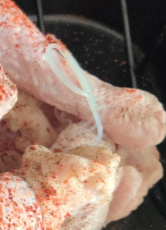
1638188623.png (456.8 KB, 1600x1723, twilight_sparkle_thinking_by_90sigma-d7re6g3.png)

>>4581
Its not a problem, those are made from heat-resistant nylon
But yeah, theres plastic there. To avoid any chemical leeching, replace with butcher's twine.
Its not a problem, those are made from heat-resistant nylon
But yeah, theres plastic there. To avoid any chemical leeching, replace with butcher's twine.
>>4582
I'm back. After some questioning and no straight answers, I must admit that there is a possibility that I burnt myself when I assured that wasn't any plastic involved, worst yet, I believed the vegetable filling without a second thought. That said, I found no plastic in her garbage bin.
Disclaimer: I was on my way to her home when that picture was forwarded to me.
F
I'm back. After some questioning and no straight answers, I must admit that there is a possibility that I burnt myself when I assured that wasn't any plastic involved, worst yet, I believed the vegetable filling without a second thought. That said, I found no plastic in her garbage bin.
Disclaimer: I was on my way to her home when that picture was forwarded to me.
F
>>4586
>1:10 of oven, damn.
After watching that raw body parts preparation I'm wondering how some people have the gall to criticize Hannibal Lecter.
Just to be on the safe side, I'll stick to traditional meatballs.
>1:10 of oven, damn.
After watching that raw body parts preparation I'm wondering how some people have the gall to criticize Hannibal Lecter.
Just to be on the safe side, I'll stick to traditional meatballs.
https://yewtu.be/watch?v=h2tY_qqTk-E
<On fermented mares milk
>Kumis, that is, mares' milk...
>is moderately bitter.
>It bites the tongue like a harsh wine,
>and after remains a flavor of almond milk.
>It provides a great deal of internal human joy
>and even intoxicates weak heads.
Alcoholic, Chocolate or Directly mares' milk is one of life's delicacies.
<A Great Deal of Human Joy
No wonder Genghis Khan could conquer so much so fast.
[Read more] <On fermented mares milk
>Kumis, that is, mares' milk...
>is moderately bitter.
>It bites the tongue like a harsh wine,
>and after remains a flavor of almond milk.
>It provides a great deal of internal human joy
>and even intoxicates weak heads.
Alcoholic, Chocolate or Directly mares' milk is one of life's delicacies.
<A Great Deal of Human Joy
No wonder Genghis Khan could conquer so much so fast.
>>4599
>No wonder Genghis Khan could conquer so much so fast.
According to the video, the faggot got a knack for drinking blood.
>No wonder Genghis Khan could conquer so much so fast.
According to the video, the faggot got a knack for drinking blood.
>>4600
Speaking of blood, here's a fun food thing. It's the equivalent to an egg and can replace it in some recipes such as in breads.
All the foods look very good.
Speaking of blood, here's a fun food thing. It's the equivalent to an egg and can replace it in some recipes such as in breads.
All the foods look very good.
>>4605
Their bolognese is decent, but inferior. Ill check thenother recipes, but so far it seems like a good source for baseline recipes
Their bolognese is decent, but inferior. Ill check thenother recipes, but so far it seems like a good source for baseline recipes
1639462108.jpg (128.4 KB, 656x1024, poh-sow-seeds-4-P-59-656x1024.jpg)

Sugar may prevent yeast from properly doing its job. Going to do some tests later in a month or week or something.
1642406829.jpg (41.7 KB, 656x700, heathier-food-potatoes-what-did.jpeg)

Some stuff I learned about cooking oils recently.
I would consider this to be extremely important and everyone should at least take into consideration for maintaining health.
https://besynchro.com/blogs/blog/7770981-oxidized-oils-is-your-cooking-oil-toxic
I can't say much for this specific website, but it checks out my sniff test based on my soap making experience, my long time cooking enthusiast self, and cross-referencing with other websites on the matter.
Oils processed from various foods (olives, seeds, nuts, grains...) break down/oxidize/go rancid over an amount of time, generally on the order of months to a few years. How fast they go rancid depends on temperature, humidity, exposure to light, and probably what they are being used to cook with.
All of these oils are composed of various different fatty acids that do different things at different temperatures or exposed to different chemicals (like when making soap or cooking with garlic or whatever). Some oils will last longer than others or start burning at higher temperatures because their fatty acid chemical makeup is different. It is impossible to get an oil that is composed of only one of these fatty acids, so we just have to make due with overall oil composition.
Common street knowledge is that deep fried shit is shit for your health.
Most of the time this is correct. The main reason is that restaurants reuse the oil over and over again at relatively high temperatures. They typically use canola oil, corn oil, or some other similar vegetable oil that won't burn at the higher temps. They (likely) won't change the oil out until the oil is far past its rancid state. It is oil that has gone rancid that is very unhealthy, not strictly because something is deep fried. Oil goes rancid much quicker at higher temperatures.
How do you know if oil has gone rancid?
As near as I can tell the only way most people test is if it smells bad. I'd also say throw the oil away if its past the "best by" date. Or maybe burn the oil in an oil lamp or your diesel truck or generator instead of throwing it in the dumpster. Companies processing the oils test for the totox value, or probably other similar tests.
http://www.andersonintl.com/oil-oxidation-how-to-measure-it-and-why-it-matters/
https://www.sciencedirect.com/science/article/pii/B9780081004357000162
What happens when you consume rancid oil?
Cancer, among other things.
>Plant-based oils, such as safflower oil and sunflower oil, contain plenty of polyunsaturated fatty acids (PUFAs) which oxidize easily in the presence of light, heat, or oxygen in the air. Many of the oxidation products of PUFAs have been reported to have cytotoxic (toxic to cells) and mutagenic (capable of changing the DNA) effects. Cytotoxic and mutagenic substances are commonly known to increase the risk of cancer, and indeed, a 2002 study published in the journal Anticancer Research reported that rancid oils not only appear to be involved in tumor promotion but also in tumor initiation. This study was carried out on mice, and rancid corn oil was used as the source of spoiled fatty acids.
https://www.healwithfood.org/bad-for-you/rancid-oil.php
Technically my research into this subject started when I started making soap. One of the first things I came across was the "dreaded yellow spots" that appeared in my bars of soap. Turns out those come from rancid oils being used, and the soap making process does not preserve the oils in anyway either. So I learned of the relationship between temp, humidity, and age of oils to how quickly they go rancid. I just didn't make the connection of rancid soap to rancid cooking oils until recently, because I'm a dumbass.
In the soap making world, canola, sunflower, safflower, grapeseed, and corn oils are considered crap to use because they go rancid rather quickly. You can often find these oils in beard oils too, not because they are good for the skin or hair, but because they are cheap filler oils used to make more money with.
Once upon a time, crysco was developed as an attempt to make cottonseed oil last longer for the soap manufacturers at the time. Since then, they instead moved away from cottonseed oil and instead focused on a vegetable shortening product to replace lard with for baking. Lard and tallow are extremely long-lasting oils that are high in saturated fatty acids, along with most other oils that are solid at room temperature.
One time I had an FDA paid "expert" dietitian try to tell me that saturated fatty acid oils like coconut oil was unhealthy, specifically calling out coconut oil. These people want you to get cancer and die. But (you) already knew that, right?
As near as I can tell, "saturated fats are unhealthy" is a hit to promote the canola oil and vegetable oil industry paid for by companies like pillsbury (they make crysco) to the FDA.
Even though olive oil is really healthy, at this point I would not recommend using it for pan frying much of anything because of how easily it burns and breaks down. Grapeseed oil is really healthy too but goes rancid rather quickly, but at least it does not burn at lower temps. I would recommend frying everything in either coconut oil or lard. Lard is really good because you can make sure your guests are not islamist shitheads or kikes.
tl;dr don't buy cooking oils that are a few months away from the "best by" or expiration date. Throw away smelly oils. The shit causes cancer.
[Read more] I would consider this to be extremely important and everyone should at least take into consideration for maintaining health.
https://besynchro.com/blogs/blog/7770981-oxidized-oils-is-your-cooking-oil-toxic
I can't say much for this specific website, but it checks out my sniff test based on my soap making experience, my long time cooking enthusiast self, and cross-referencing with other websites on the matter.
Oils processed from various foods (olives, seeds, nuts, grains...) break down/oxidize/go rancid over an amount of time, generally on the order of months to a few years. How fast they go rancid depends on temperature, humidity, exposure to light, and probably what they are being used to cook with.
All of these oils are composed of various different fatty acids that do different things at different temperatures or exposed to different chemicals (like when making soap or cooking with garlic or whatever). Some oils will last longer than others or start burning at higher temperatures because their fatty acid chemical makeup is different. It is impossible to get an oil that is composed of only one of these fatty acids, so we just have to make due with overall oil composition.
Common street knowledge is that deep fried shit is shit for your health.
Most of the time this is correct. The main reason is that restaurants reuse the oil over and over again at relatively high temperatures. They typically use canola oil, corn oil, or some other similar vegetable oil that won't burn at the higher temps. They (likely) won't change the oil out until the oil is far past its rancid state. It is oil that has gone rancid that is very unhealthy, not strictly because something is deep fried. Oil goes rancid much quicker at higher temperatures.
How do you know if oil has gone rancid?
As near as I can tell the only way most people test is if it smells bad. I'd also say throw the oil away if its past the "best by" date. Or maybe burn the oil in an oil lamp or your diesel truck or generator instead of throwing it in the dumpster. Companies processing the oils test for the totox value, or probably other similar tests.
http://www.andersonintl.com/oil-oxidation-how-to-measure-it-and-why-it-matters/
https://www.sciencedirect.com/science/article/pii/B9780081004357000162
What happens when you consume rancid oil?
Cancer, among other things.
>Plant-based oils, such as safflower oil and sunflower oil, contain plenty of polyunsaturated fatty acids (PUFAs) which oxidize easily in the presence of light, heat, or oxygen in the air. Many of the oxidation products of PUFAs have been reported to have cytotoxic (toxic to cells) and mutagenic (capable of changing the DNA) effects. Cytotoxic and mutagenic substances are commonly known to increase the risk of cancer, and indeed, a 2002 study published in the journal Anticancer Research reported that rancid oils not only appear to be involved in tumor promotion but also in tumor initiation. This study was carried out on mice, and rancid corn oil was used as the source of spoiled fatty acids.
https://www.healwithfood.org/bad-for-you/rancid-oil.php
Technically my research into this subject started when I started making soap. One of the first things I came across was the "dreaded yellow spots" that appeared in my bars of soap. Turns out those come from rancid oils being used, and the soap making process does not preserve the oils in anyway either. So I learned of the relationship between temp, humidity, and age of oils to how quickly they go rancid. I just didn't make the connection of rancid soap to rancid cooking oils until recently, because I'm a dumbass.
In the soap making world, canola, sunflower, safflower, grapeseed, and corn oils are considered crap to use because they go rancid rather quickly. You can often find these oils in beard oils too, not because they are good for the skin or hair, but because they are cheap filler oils used to make more money with.
Once upon a time, crysco was developed as an attempt to make cottonseed oil last longer for the soap manufacturers at the time. Since then, they instead moved away from cottonseed oil and instead focused on a vegetable shortening product to replace lard with for baking. Lard and tallow are extremely long-lasting oils that are high in saturated fatty acids, along with most other oils that are solid at room temperature.
One time I had an FDA paid "expert" dietitian try to tell me that saturated fatty acid oils like coconut oil was unhealthy, specifically calling out coconut oil. These people want you to get cancer and die. But (you) already knew that, right?
As near as I can tell, "saturated fats are unhealthy" is a hit to promote the canola oil and vegetable oil industry paid for by companies like pillsbury (they make crysco) to the FDA.
Even though olive oil is really healthy, at this point I would not recommend using it for pan frying much of anything because of how easily it burns and breaks down. Grapeseed oil is really healthy too but goes rancid rather quickly, but at least it does not burn at lower temps. I would recommend frying everything in either coconut oil or lard. Lard is really good because you can make sure your guests are not islamist shitheads or kikes.
tl;dr don't buy cooking oils that are a few months away from the "best by" or expiration date. Throw away smelly oils. The shit causes cancer.
I got an instapot and finally figured out how to make amazing refried beans. The canned stuff is inedible and makes me sick now, so i had to learn how to do this so i could eat all the kinds of meals i had growing up. Also been making pinto bean hummus or bean dip
Also got a breadmaker and it's super easy, just drop ingredients in and you have a fresh hot loaf 3 hours later. I make grilled tuna and cheese sandwiches with it, and PB toast and stuff.
Also got a breadmaker and it's super easy, just drop ingredients in and you have a fresh hot loaf 3 hours later. I make grilled tuna and cheese sandwiches with it, and PB toast and stuff.
1642497646.jpg (42.0 KB, 500x495, cat-watches-two-much-master-chef-mouse-garnish.jpeg)
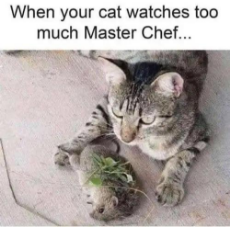
>>4680
I feel like I should clarify a couple things a bit.
I am not saying grapeseed oil or olive oil are less healthy than coconut oil or lard or other highly saturated fats. I am saying because grapeseed oil and olive oil go rancid a lot faster, and because of the difficultly to detect when they go rancid, that saturated fats are (probably) overall healthier for you.
I've been noticing that most of the lower saturated fat oils contain TBHQ as an "oxidizer prevention agent". It is a synthetic chemical used to inhibit the oxidization, or oil-going-rancid process. I do not suspect TBHQ is unhealthy in small amounts, but more study should be done than just a passing glance.
Oils (sometimes? most of the time?) have citric acid added to help preserve flavor. I suspect this is what makes rancid oil more difficult to detect with the sniffer, but at least its fine for consumption.
I have rendered my own tallow before from a slab of suet. The suet was 5lbs and I got about 3lbs 11 ounces of useful oil out of it, or about a 75% return of useful oil from the suet. Lard or Tallow will keep a very, very long time, especially if stored in the refrigerator. 5 years? 10? More?
Anyway, that's about all I know about oil longevity and overall health risks.
Just make sure to buy oils that have an expiration date of more than a year in the future.
[Read more] I feel like I should clarify a couple things a bit.
I am not saying grapeseed oil or olive oil are less healthy than coconut oil or lard or other highly saturated fats. I am saying because grapeseed oil and olive oil go rancid a lot faster, and because of the difficultly to detect when they go rancid, that saturated fats are (probably) overall healthier for you.
I've been noticing that most of the lower saturated fat oils contain TBHQ as an "oxidizer prevention agent". It is a synthetic chemical used to inhibit the oxidization, or oil-going-rancid process. I do not suspect TBHQ is unhealthy in small amounts, but more study should be done than just a passing glance.
Oils (sometimes? most of the time?) have citric acid added to help preserve flavor. I suspect this is what makes rancid oil more difficult to detect with the sniffer, but at least its fine for consumption.
I have rendered my own tallow before from a slab of suet. The suet was 5lbs and I got about 3lbs 11 ounces of useful oil out of it, or about a 75% return of useful oil from the suet. Lard or Tallow will keep a very, very long time, especially if stored in the refrigerator. 5 years? 10? More?
Anyway, that's about all I know about oil longevity and overall health risks.
Just make sure to buy oils that have an expiration date of more than a year in the future.
1642833332.jpg (115.2 KB, 537x800, this-is-why-landlords-demand-a-security-deposit.jpg)
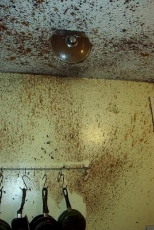
>>4684
>I am not saying grapeseed oil or olive oil are less healthy than coconut oil or lard or other highly saturated fats
I'll say it then.
Olive or coconut oil for low-medium temp, bacon fat for medium-high temp, and peanut or avocado oil for high temp.
This is to do with the smoke point of the oils, which when burned make the oils increasingly less digestable, while also negatively impacting the flavor.
'Okay' oils (which I still dont recomend) include grapeseed and sunflower. Avoid canola (genetically modified) and cottonseed (likewise) like the plague. Only use lard if you dont like who you're cooking for, in fact avoid ALL major manufactured 'name brand' oils and shit. They just figured out a way to market what was otherwise waste product from other areas of heavy processing.
>I am not saying grapeseed oil or olive oil are less healthy than coconut oil or lard or other highly saturated fats
I'll say it then.
Olive or coconut oil for low-medium temp, bacon fat for medium-high temp, and peanut or avocado oil for high temp.
This is to do with the smoke point of the oils, which when burned make the oils increasingly less digestable, while also negatively impacting the flavor.
'Okay' oils (which I still dont recomend) include grapeseed and sunflower. Avoid canola (genetically modified) and cottonseed (likewise) like the plague. Only use lard if you dont like who you're cooking for, in fact avoid ALL major manufactured 'name brand' oils and shit. They just figured out a way to market what was otherwise waste product from other areas of heavy processing.
Fellow foodbros is bread pozzed?
I like making my own burgers with mincemeat, salad, eggs, and more but a christian friend said bread is poison full of toxins and impurities.
What can replace bread to make the burger healthy?
I like making my own burgers with mincemeat, salad, eggs, and more but a christian friend said bread is poison full of toxins and impurities.
What can replace bread to make the burger healthy?
>>4715
Bread is no more pozzed than msg.
Which is to say, you can employ shit bread just as you can shit msg. Your results will be shit.
Bread however csn be made fresh anf with little/no artificial ingredients. And its delicious.
Msg is the same way. My metaphor went off the rails, but if you you use fresh, well-sourced msg its like using fresh baked bread.
So no, bread is not pozzed, unless your source is pozzed. And prolly cuz not enough msg.
Bread is no more pozzed than msg.
Which is to say, you can employ shit bread just as you can shit msg. Your results will be shit.
Bread however csn be made fresh anf with little/no artificial ingredients. And its delicious.
Msg is the same way. My metaphor went off the rails, but if you you use fresh, well-sourced msg its like using fresh baked bread.
So no, bread is not pozzed, unless your source is pozzed. And prolly cuz not enough msg.
1643216778.mp4 (11.0 MB, Resolution:1920x1080 Length:00:00:30, salt + time = magic.mp4) [play once] [loop]
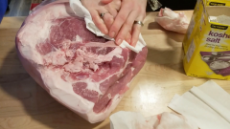
Cured meats for many meaty needs.
[YouTube] How to make Dry Cured Ham at home (Prosciutto Crudo) - Step by Step instructions![]()
[YouTube] How to make Dry Cured Ham at home (Prosciutto Crudo) - Step by Step instructions
You read that correctly.
About 6 mos ago I got an Anova Sous Vide circulator (~200) and Ive been experimenting with it extensively ever since.
Imo, it is a must-have, especially for college students who dont have immediate access to a stovetop. Not even kidding, one of these along with a table-top electric burner and amicrowave air-fryer is a pretty solid and all-purpose basic setup.
The beauty of Sous Vide - if u havent watched a bunch of youtube videos about it - is that you CANT overcook your meat. It IS possible to cook it for a duration that causes the flavor and texture to be negatively affected, but you have to leave it in for like 2x the necessary cook time.
Ex, I just put in a pork shoulder roast to cook for ~11 hours. At ~22 hours is when the meat will start to degrade,... meaning as long as I dont forget about it for an extra 11 hours, itll be fine (oh no, I have to remember to finish dinner before 11pm). The biggest issue with sous vide is also one of its strengths; since its a long low and slow, as long as you get your timing right on when the food starts (and the thing has programmable delay timers and shit) its not a process that requires monitoring, and if you top the resevior off you shouldnt need to replace any evaporated water. The length of time is really the only 'downside', and its minimal with a little bit of planning.
And for something you WONT hear anywhere else:
as a patrician aficionado with a taste for Blue Rare beef, sous vide is even BETTER. Because of the temperature control and slow heating, it is IDEAL for getting the PERFECT blue rare outta your meat! Use only whole, fresh cuts for safety and be sure to dry brine (cover with salt in the fridge for a day or two) and sear the outside, but you can heat the inside to a precise 125 throughout, giving you that glorious almost-purple flesh that only truest carnivores know. Seriously though, the more you cook meat, the more you render protein insoluble. Youll never know how nutrient dense and energizing a minimally cooked steak is until you try it. Recommended that you slice super thin (<1/2"), and pair it with some horseradish cream, or some bearnaise.
[Read more] About 6 mos ago I got an Anova Sous Vide circulator (~200) and Ive been experimenting with it extensively ever since.
Imo, it is a must-have, especially for college students who dont have immediate access to a stovetop. Not even kidding, one of these along with a table-top electric burner and a
The beauty of Sous Vide - if u havent watched a bunch of youtube videos about it - is that you CANT overcook your meat. It IS possible to cook it for a duration that causes the flavor and texture to be negatively affected, but you have to leave it in for like 2x the necessary cook time.
Ex, I just put in a pork shoulder roast to cook for ~11 hours. At ~22 hours is when the meat will start to degrade,... meaning as long as I dont forget about it for an extra 11 hours, itll be fine (oh no, I have to remember to finish dinner before 11pm). The biggest issue with sous vide is also one of its strengths; since its a long low and slow, as long as you get your timing right on when the food starts (and the thing has programmable delay timers and shit) its not a process that requires monitoring, and if you top the resevior off you shouldnt need to replace any evaporated water. The length of time is really the only 'downside', and its minimal with a little bit of planning.
And for something you WONT hear anywhere else:
as a patrician aficionado with a taste for Blue Rare beef, sous vide is even BETTER. Because of the temperature control and slow heating, it is IDEAL for getting the PERFECT blue rare outta your meat! Use only whole, fresh cuts for safety and be sure to dry brine (cover with salt in the fridge for a day or two) and sear the outside, but you can heat the inside to a precise 125 throughout, giving you that glorious almost-purple flesh that only truest carnivores know. Seriously though, the more you cook meat, the more you render protein insoluble. Youll never know how nutrient dense and energizing a minimally cooked steak is until you try it. Recommended that you slice super thin (<1/2"), and pair it with some horseradish cream, or some bearnaise.
>How To Make Italian Neapolitan Pizza With A Home Oven [Recipe + Tutorial]
https://www.rooshv.com/how-to-make-italian-neapolitan-pizza-in-a-home-oven-recipe-tutorial
Page with plenty of pictures and videos, too long to fully screenshot.
https://www.rooshv.com/how-to-make-italian-neapolitan-pizza-in-a-home-oven-recipe-tutorial
Page with plenty of pictures and videos, too long to fully screenshot.
1652659360.jpg (134.7 KB, 706x1109, Screenshot_20220515-185150_DuckDuckGo.jpg)

BLTs.
You prolly know about blts. Im gonna give u my tips.
1. Avocado, or avocado sauce (>pic related)
One, the other, or both. Include.
2. Bacon, oven cooked, 400° for 20 minutes
3. Tomato, ~3/8" slices. Avo sauce or lemon pepper, non-negotiable.
4. Lettuce, 2-3 fresh layers (nothing wilted)
5. Cheese (optional); something with punch, a stronger flavor. Avoid american, swiss, muenster, etc. Blue cheese, xtra sharp cheddar, et al advised in balanced quantities.
6. Habajero aoli on the inside of one or both breads, depending on individual tolerance (ghost pepper aoli recommended)
7. Bread; fresh baked pullman loaf, whether brioche, regular, or sourdough.
You prolly know about blts. Im gonna give u my tips.
1. Avocado, or avocado sauce (>pic related)
One, the other, or both. Include.
2. Bacon, oven cooked, 400° for 20 minutes
3. Tomato, ~3/8" slices. Avo sauce or lemon pepper, non-negotiable.
4. Lettuce, 2-3 fresh layers (nothing wilted)
5. Cheese (optional); something with punch, a stronger flavor. Avoid american, swiss, muenster, etc. Blue cheese, xtra sharp cheddar, et al advised in balanced quantities.
6. Habajero aoli on the inside of one or both breads, depending on individual tolerance (ghost pepper aoli recommended)
7. Bread; fresh baked pullman loaf, whether brioche, regular, or sourdough.
>>5490
Cilantro Avocado Lime sauce
[YouTube] this sauce is a GRILLED CHEESE SECRET WEAPON![]()
[YouTube] the GRILLED CHEESE I ate every other day for 2 years (The Fort Greene Grilled Cheese)![]()
This stuff is next level. I keep putting it on different shit, and it continues to perform. Srsly, this is a game changing sauce.
For smaller batches, recommeded 2 bunches of cilantro to 1 bunch scallion and chives. Also, substitute habaneros for jalapenos. Its only hotter if u keep the flesh in, dont be a baby.
Cilantro Avocado Lime sauce
[YouTube] this sauce is a GRILLED CHEESE SECRET WEAPON
[YouTube] the GRILLED CHEESE I ate every other day for 2 years (The Fort Greene Grilled Cheese)
This stuff is next level. I keep putting it on different shit, and it continues to perform. Srsly, this is a game changing sauce.
For smaller batches, recommeded 2 bunches of cilantro to 1 bunch scallion and chives. Also, substitute habaneros for jalapenos. Its only hotter if u keep the flesh in, dont be a baby.
Friendly reminder that OP's food tastes better.
>The meta of smash-burgers
Theres plenty on YT and others. Look them up. What they dont tell you:
1. No such thing as too thick
2. The thicker the burger, the thicker the onions
3. Fancy buns
4. Profit?
1. Most guides say 3-4 oz patties.
Horseshit. When ur making a smashburger, its about the crust on the patty. Make the patty as thick as you want, as long as its cooked fully. On one side, nothing changes. On the other side, thickness of patty/onions is crucial.
2. Recipe smashburgers tend to be 1/4"-1/2". Fuck off with that shit.
Smash-burgers can be almost any size, but I advise against >8oz/patty. Beyond that, it becomes less anageable.
But
The thicker the patty, the longer it takes to brown.
This is WHY the thicker the patty, the thickrr the onion.
You want your onions thic ENOUGH that your onions are semi carmelized AS the browning on your patty is finishing. There may be funky trchniques, but my solution is thickrr onions.
3. Oh come on
[Read more] Theres plenty on YT and others. Look them up. What they dont tell you:
1. No such thing as too thick
2. The thicker the burger, the thicker the onions
3. Fancy buns
4. Profit?
1. Most guides say 3-4 oz patties.
Horseshit. When ur making a smashburger, its about the crust on the patty. Make the patty as thick as you want, as long as its cooked fully. On one side, nothing changes. On the other side, thickness of patty/onions is crucial.
2. Recipe smashburgers tend to be 1/4"-1/2". Fuck off with that shit.
Smash-burgers can be almost any size, but I advise against >8oz/patty. Beyond that, it becomes less anageable.
But
The thicker the patty, the longer it takes to brown.
This is WHY the thicker the patty, the thickrr the onion.
You want your onions thic ENOUGH that your onions are semi carmelized AS the browning on your patty is finishing. There may be funky trchniques, but my solution is thickrr onions.
3. Oh come on
>pics related
Tonight's iteration. ~6oz 23/72 ground, ~3/4" finish, crusty outside and juicy inside
1 swiss, 1 pepperjack slices, plus the onions.
Oh, also the bacon, shallots, chives, thyme, rosemary, paprika, and of course the king of flavor: msg
Walmart ciabatta buns
Tonight's iteration. ~6oz 23/72 ground, ~3/4" finish, crusty outside and juicy inside
1 swiss, 1 pepperjack slices, plus the onions.
Oh, also the bacon, shallots, chives, thyme, rosemary, paprika, and of course the king of flavor: msg
Walmart ciabatta buns
[Reply] [Last 50 Posts] [Last 100 Posts] [Last 200 Posts]
You are viewing older replies. Click [View All] or [Last n Posts] to vew latest posts.
Clicking update will load all posts posted after last post on this page.
Post pagination: [Prev] [1-50] [51-100] [101-150] [151-200] [201-250] [251-300] [301-350] [351-400] [401-450] [451-500] [501-545] [Next] [Live (last 50 replies)]
545 replies | 323 files | 183 UUIDs | Page 1
[Add to Thread Watcher]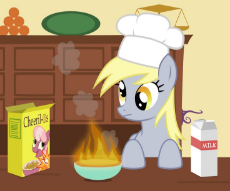

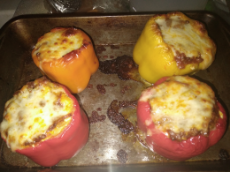






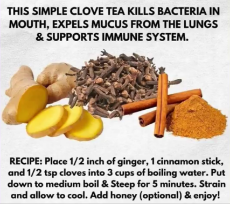
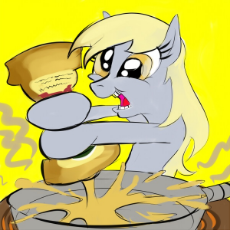
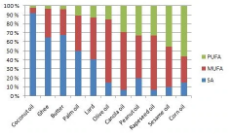

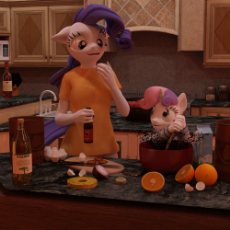





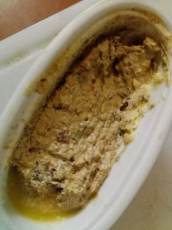
 Ex: Type :littlepip: to add Littlepip
Ex: Type :littlepip: to add Littlepip  Ex: Type :eqg-rarity: to add EqG Rarity
Ex: Type :eqg-rarity: to add EqG Rarity 